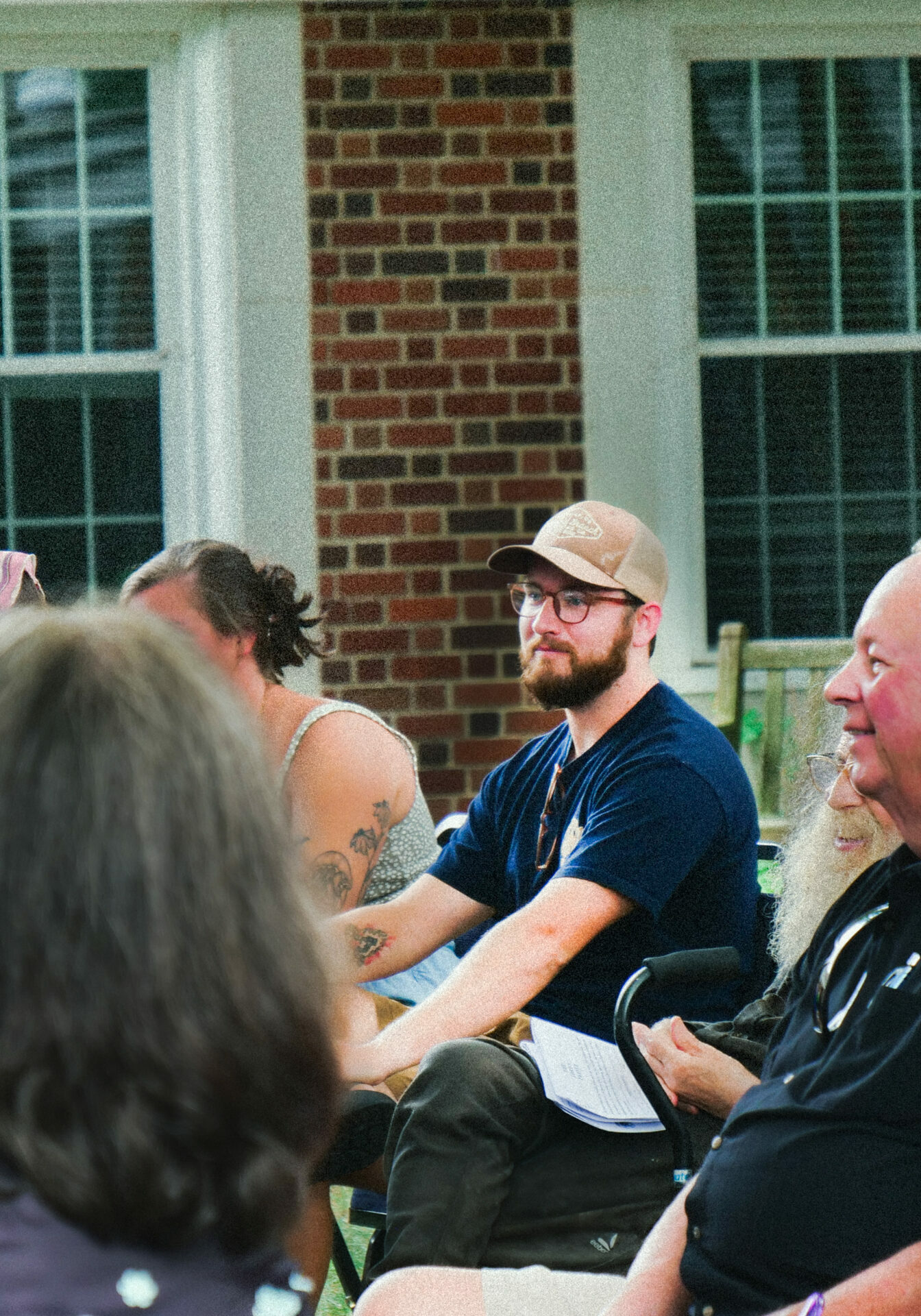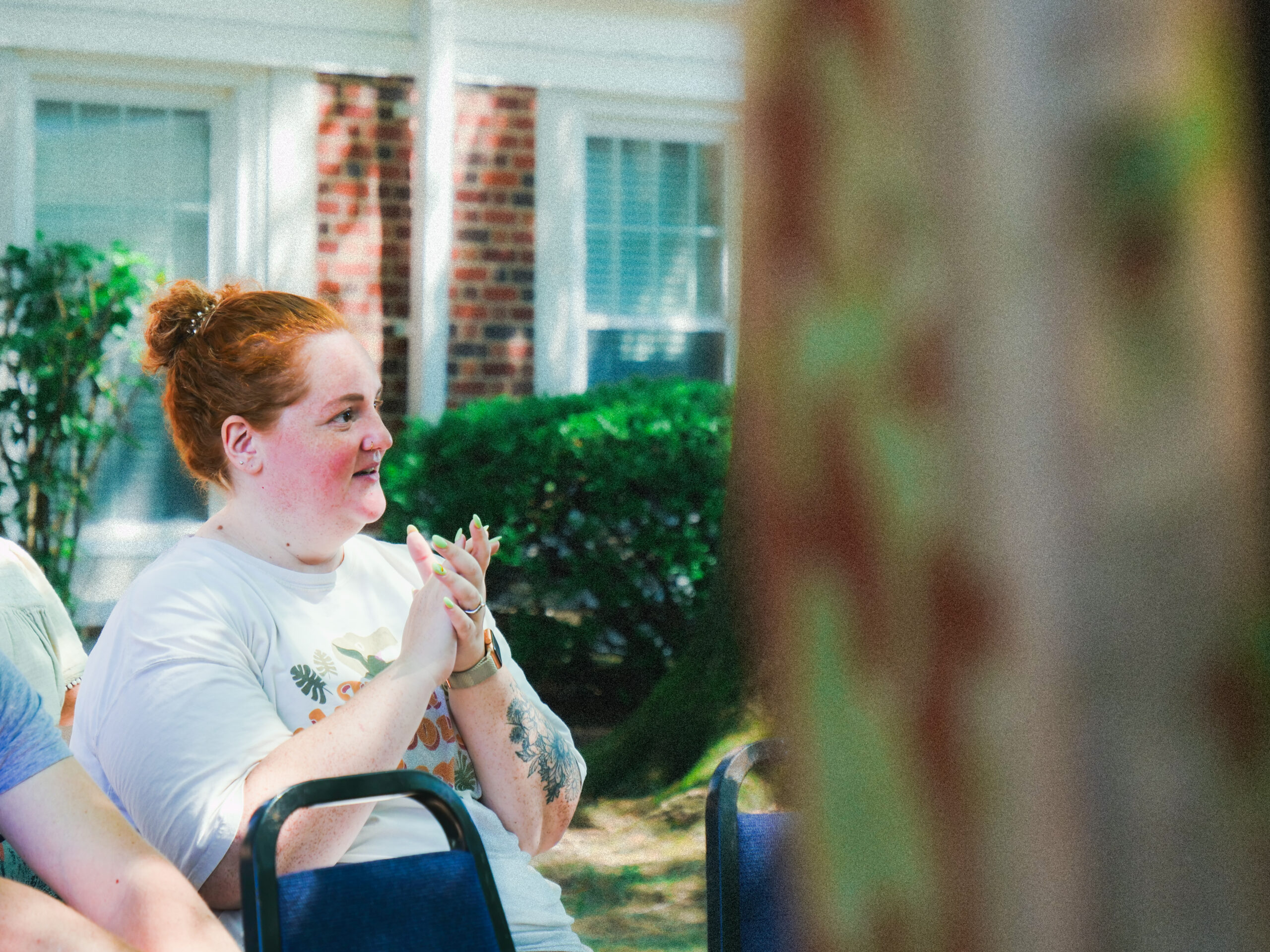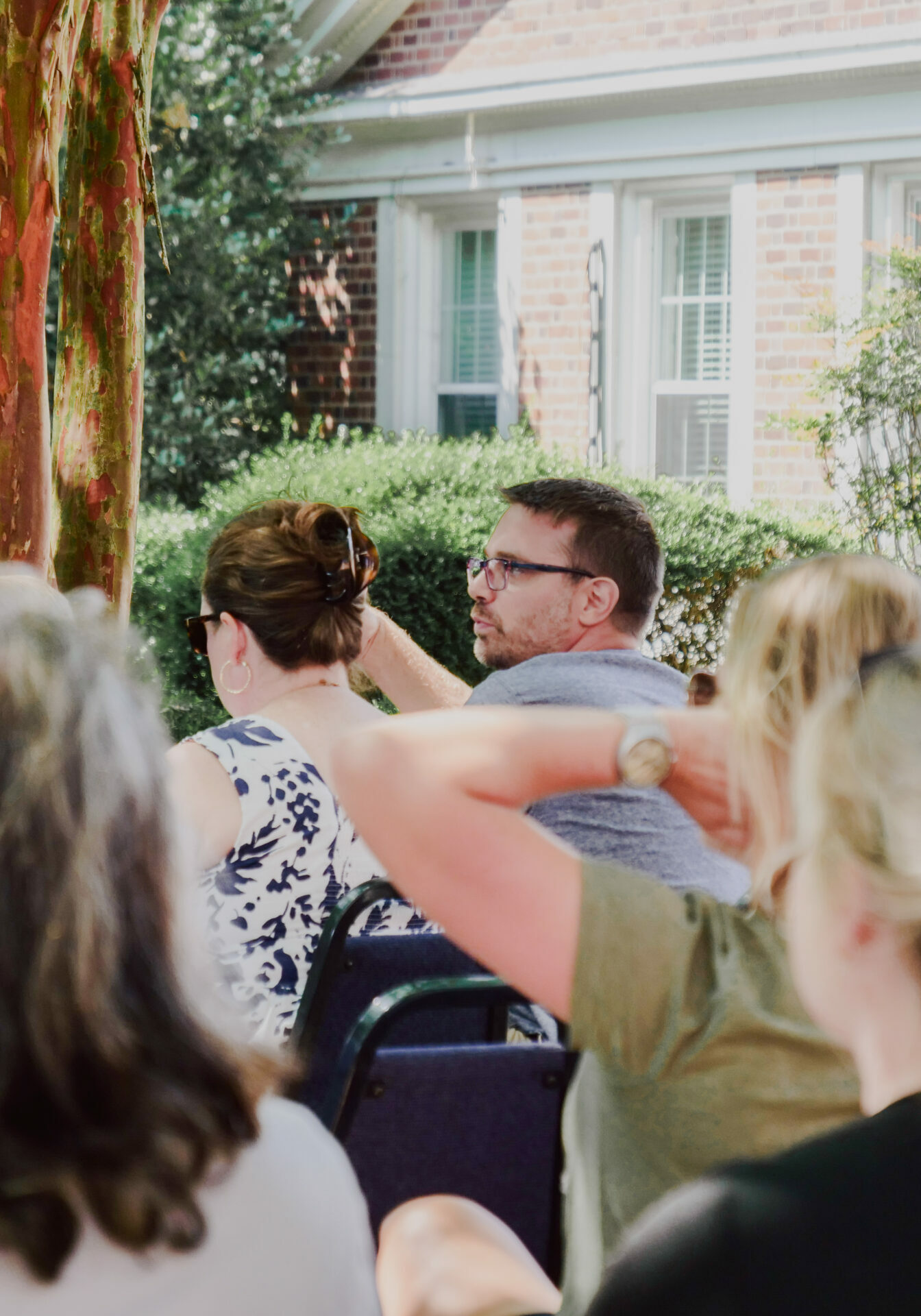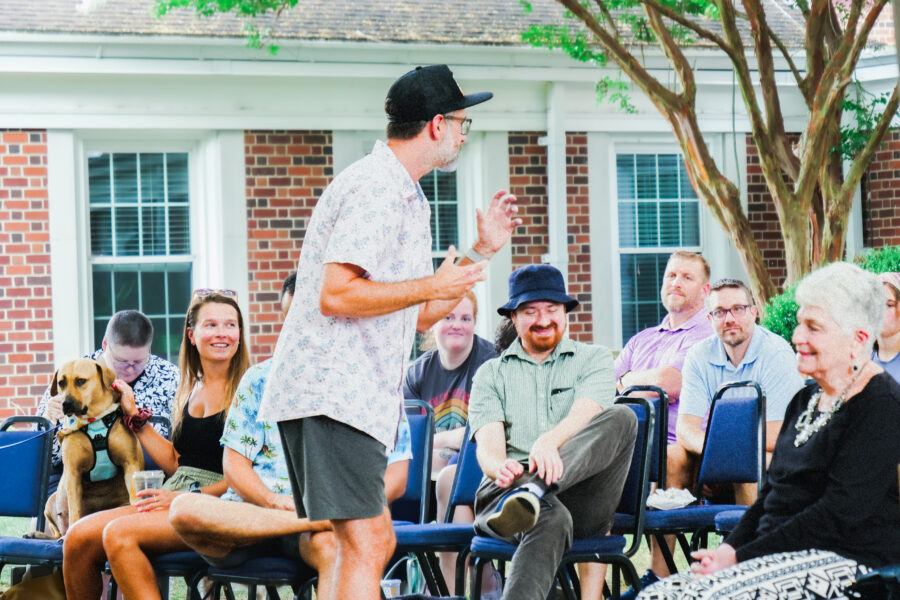
In many ways (most ways, probably), TRP's services are exactly what you would expect from a local church. We sing a few songs together, we usually have some announcements to make, the majority of our time is devoted to a sermon, and we conclude with communion.
(1) We are a small community. You will be seen. And we will do our best to welcome you (without overdoing it!) prior to the service.
(2) Kids (ages 3–12) begin the service with the adults and stay for the singing. We always finish the music with an a cappella version of the Doxology. Afterwards, we ask the kids to come up front for an affirmation led by a regular attender of TRP.

You are loved by the same God who created this big, beautiful world.
The kids seem to enjoy this time, but if your kids would be more comfortable staying with you in their seat, that is absolutely fine.

(3) Our sermons are not 25-minute monologues. They are conversational. The week's preacher will ask some questions ... and they want people to actually respond! Everyone is invited to participate, but if that makes you uncomfortable, silence is perfectly fine. (No one will be called on.)
To give you an idea of how this works in practice, it's not strange for someone to begin their response, "I struggle to believe God exists, so this issue is tough for me ..."
Or "This passage really troubles me for the following reasons ..."
Or "I have heard this text being used in problematic ways, can we talk about it ..."
Or sometimes participants might just ask a question about the text.
Anything, as long as it is respectful of the community and our goals, is fair game.
(4) Finally, we often introduce our Sunday service by identifying TRP as a "theologically progressive, Cooperative Baptist Fellowship church." For us, this means a lot of things, but we want to highlight a couple important points here:
TRP does not limit the role of church leadership to a specific gender. Instead, we support, affirm, and provide opportunities for anyone who is called by our community to teach and lead, regardless of gender.
Neither does TRP limit the inclusion or involvement or potential leadership opportunities for LGBTQ folks in the church. We seek to foster a safe and welcoming environment where every attendee, regardless of their sexual orientation and/or gender identity, can participate fully as their authentic self, knowing that they are seen as a beloved child of the Most High God.
